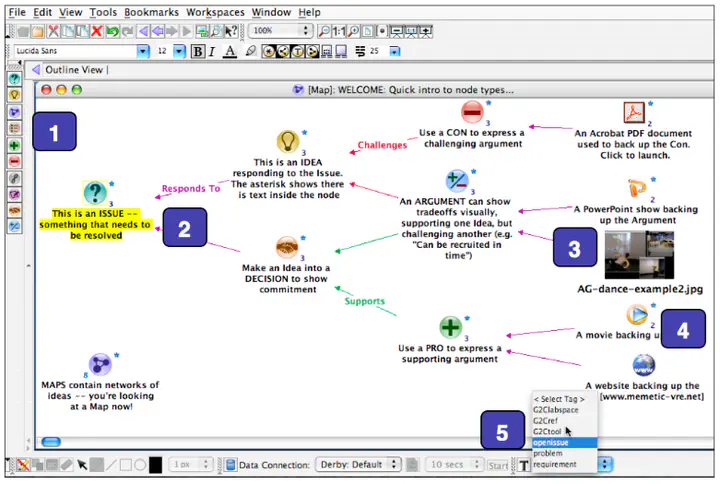Deliberation, Sensemaking, and Mapping Knowledge

A long line of research has explored the ways in which technologies can be used to support people in effective deliberation, dialogue, and mapping out of arguments in order to reason more effectively together. These are increasingly important skills to tackle the wicked problems of issues such as climate change, and learning how to enact them – supported by technology – is an important line of our work across formal and professional leaning contexts, led by Simon Buckingham Shum.
Technologies for these kinds of reasoning differ in two key respects from conventional documents, threaded discussion forums or flat comment listings. They:
Introduce a language that slows the participants down by requiring them to consider what is the nature of my contribution? Instead of simply writing down ideas as lists or prose, these tools ask you to consider if you are raising a new, important question, a position or idea, or an argument of some sort.
Make the structure of the dialogue visible as a tree/network — you can literally ‘see what you’re saying’. A notation called IBIS (Issue-Based Information System) has emerged as a ‘lingua franca’ that seems to provide an acceptable degree of useful structure.This can be done with pen and paper, but visual hypertext tools add infinite space and powerful ways to connect contributions.
You can find out more about this work
- Simon Buckingham Shum’s site, including this post on the craft and technology of structuring participatory deliberation
- and this post on helping PhD students make their thinking visible
There are a large number of publications on this work, including books, details of which can be found via the links above.